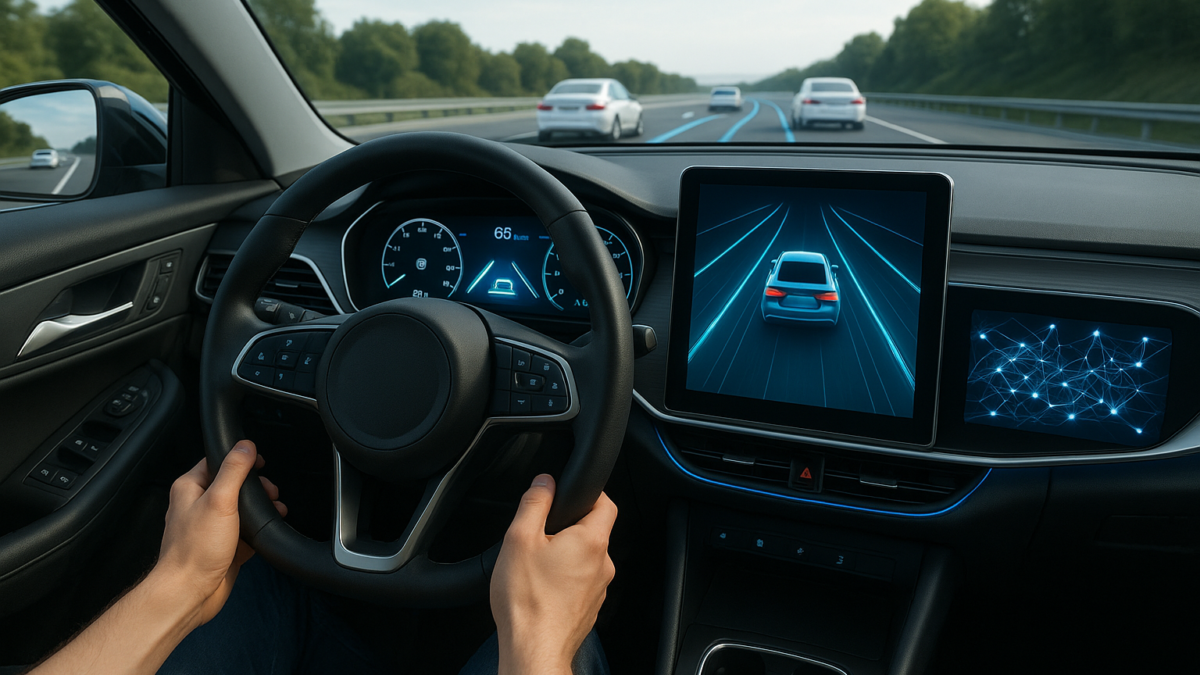Generative AI in Cars: Revolutionizing the Automotive Industry
Table of Contents
The automotive industry is experiencing a technological revolution. With the rise of generative AI, car design, manufacturing, and user experiences are being reshaped in ways that were once thought impossible. From creating futuristic car designs to enabling smarter, more personalized driving experiences, generative AI is rapidly becoming a game-changer for automakers and consumers alike.
This article explores the transformative impact of generative AI in the automotive sector, its applications, benefits, and the future opportunities it brings.
What is Generative AI?
Generative AI refers to artificial intelligence systems that can create new content, designs, or solutions by learning patterns from existing data. Unlike traditional AI, which primarily focuses on analysis and prediction, generative AI can produce innovative designs and ideas autonomously.
In cars, generative AI is being applied across design, manufacturing, autonomous driving, and user experience, allowing manufacturers to innovate faster and provide better products for consumers.
Key Applications of Generative AI in the Automotive Industry
1. Revolutionizing Vehicle Design
Generative AI allows automotive designers to create innovative car components and entire models in a fraction of the traditional time. By analyzing patterns from thousands of previous designs, AI algorithms can generate multiple design variations that meet performance, safety, and aesthetic requirements.
This not only accelerates the prototyping process but also enables designers to explore creative possibilities that may not have been considered manually.
2. Optimizing Manufacturing Processes
In modern factories, generative AI helps streamline production lines, improve efficiency, and reduce waste. By processing data from machinery and sensors, AI can predict maintenance needs, optimize material usage, and reduce production errors.
This results in cost savings, faster production timelines, and higher-quality vehicles, ultimately benefiting both manufacturers and customers.
3. Enhancing Autonomous and Assisted Driving
Generative AI is a core component in the development of autonomous vehicles. By simulating thousands of driving scenarios, AI systems can train self-driving algorithms to handle real-world conditions safely.
Additionally, generative AI enables advanced driver-assistance systems (ADAS), enhancing features such as collision avoidance, adaptive cruise control, and lane-keeping assistance. This makes driving safer and more convenient for everyday users.
4. Improving In-Car Experiences
Generative AI is also transforming the driver and passenger experience. Smart AI assistants can learn user preferences and behaviors, offering personalized entertainment, route planning, and predictive maintenance alerts.
For instance, an AI system could adjust the climate control, music, and seating automatically based on a passenger’s habits, making journeys more comfortable and enjoyable.
Benefits of Generative AI in Cars
- Faster Innovation: Designers and engineers can generate multiple car concepts in hours instead of weeks, speeding up the time-to-market.
- Cost Efficiency: Reduced waste, optimized material use, and predictive maintenance save manufacturers money.
- Enhanced Safety: AI-driven simulations help refine vehicle safety features, reducing accident risks.
- Personalization: Cars become more adaptive to individual preferences, improving the overall user experience.
- Sustainability: Efficient design and manufacturing practices reduce environmental impact.
Challenges to Consider
While generative AI offers immense benefits, automotive companies must address several challenges:
- Data Privacy: AI systems require large amounts of data, and protecting sensitive user information is critical.
- High Initial Costs: Implementing AI infrastructure can be expensive, requiring investment in both technology and skilled personnel.
- Regulatory Compliance: AI applications in vehicles must meet strict safety and regulatory standards.
- Talent Gap: Skilled professionals in AI and machine learning are in high demand, creating a competitive talent market.
The Future of Generative AI in Automotive
The future of generative AI in cars is promising and multifaceted:
- Fully Autonomous Vehicles: AI simulations and generative models will continue to improve the safety and efficiency of self-driving cars.
- Smarter In-Car Systems: AI assistants will become more intelligent, anticipating user needs and creating hyper-personalized experiences.
- Sustainable Manufacturing: Generative AI will optimize resource usage, reducing environmental footprints in production.
- Advanced Vehicle Designs: AI-generated designs will lead to more aerodynamic, lightweight, and aesthetically advanced cars.
The integration of generative AI represents not just a technological upgrade but a fundamental shift in how vehicles are designed, produced, and experienced.
Conclusion
Generative AI is no longer a futuristic concept; it is actively transforming the automotive industry. From speeding up design and production to enhancing autonomous driving and personalized in-car experiences, the potential of AI is enormous. Companies that embrace these technologies now will be better positioned to lead the market, deliver exceptional products, and provide unmatched customer experiences.
Call-to-Action
Stay ahead in the automotive revolution by leveraging the power of generative AI and cutting-edge B2B strategies. Enhance your brand’s visibility and drive growth through expert content syndication. Explore B2B content syndication services today.
See Also: AI-Powered Whitepaper Syndication: Smarter Targeting for Better Leads in 2025





